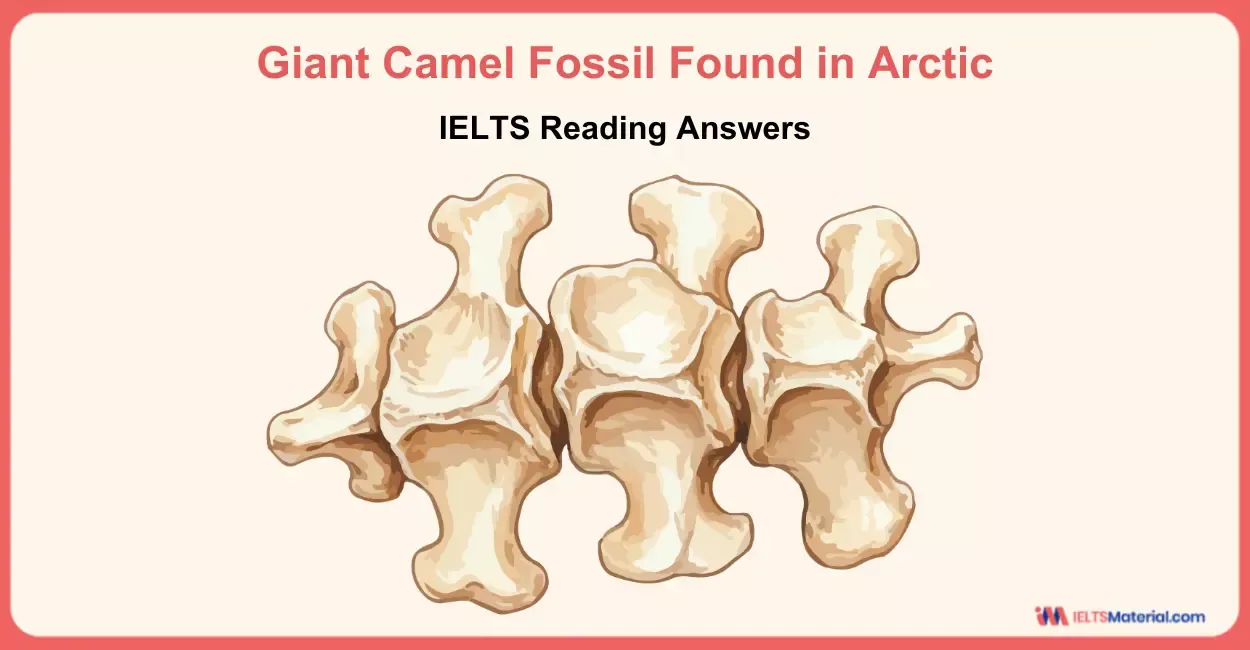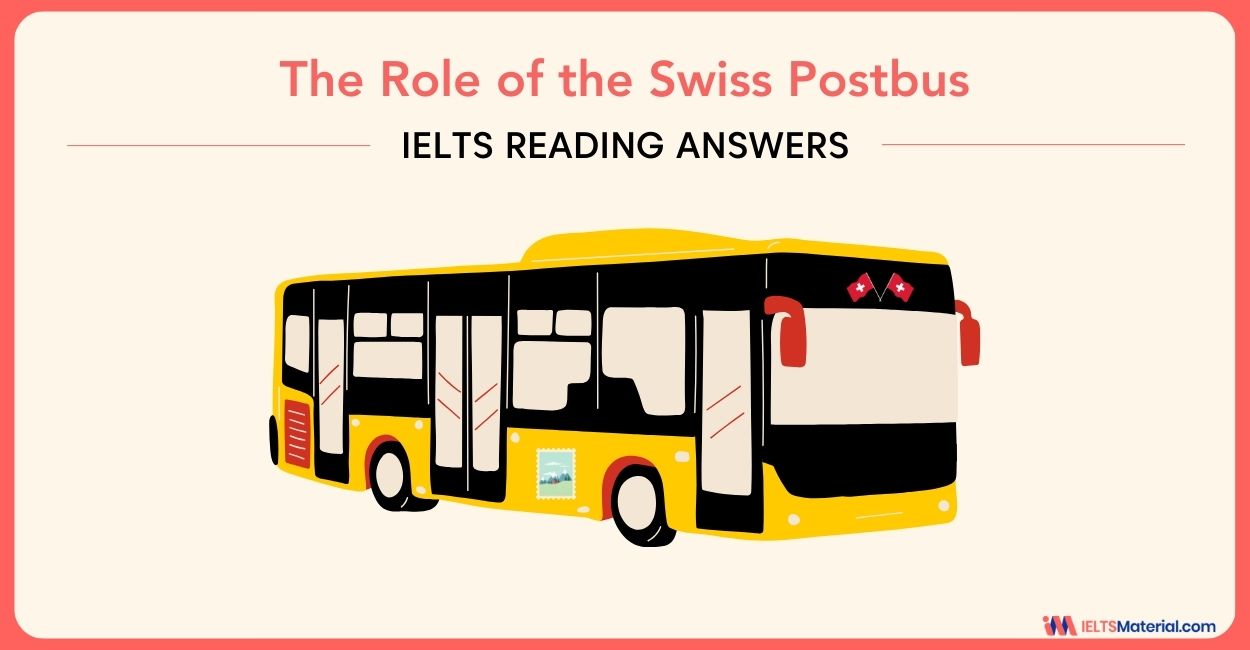Jargon- IELTS Reading Answers
10 min read
Updated On
-
Copy link
Learn how to tackle Matching Headings, Summary Completion, and Multiple Choice Questions with the IELTS Reading passage, ‘Jargon’, with answers. Get familiar with the strategies and boost your reading accuracy to get a band 8+ in the IELTS exam.
Table of Contents

Limited-Time Offer : Access a FREE 10-Day IELTS Study Plan!
The passage, ‘Jargon’, would help to handle different types of questions efficiently under IELTS exam conditions. With the right dedication and efforts, this section can become a very high-scoring one. The most important aspect is the understanding of the different question types, as well as experience in strategic tackling of questions in the IELTS Academic Reading.
As you try to attempt questions, you will improve your time management skills. With diligent practice, you will be able to identify how the information is presented in the passage. In this way, you will develop skills for paraphrased content, scanning for keywords, and interpreting complex ideas to get a band 8+.
Connect with our band 9 IELTS Trainers to crack your IELTS Reading in no time! Book a FREE Demo.
Types of Questions in IELTS Reading Passage ‘Jargon’
Acquaint yourself with the question types so that it becomes easy for you to attempt the passage ‘Jargon’. Remember to note the strengths and weaknesses for each question so that you can work towards success. This will develop your critical thinking abilities while sharpening focus.
The question types in this Reading Passage include:
- IELTS Reading Matching Headings (Q. 1-6)
- IELTS Reading Summary Completion (Q. 7-12)
- IELTS Reading Multiple Choice Questions (Q. 13)
How to Attempt Questions in Jargon to Get a Band 8+?
Before you dive straight into answering questions, it is necessary to familiarize yourself with a few IELTS Exam Preparation Tips for Band Score of 8+. Remember that a consistent study with a focused strategy can elevate your IELTS preparation. In this way, you will be able to tackle the three question types easily without stressing too much. Let’s look at the following tips, which will guide you as you attempt the Jargon IELTS Reading passage to get a band 8+.
- Instead of spending time reading every word given in the passage, practice skimming to understand the central concept and scanning for specific details. These skills will sharpen both your reading speed and accuracy under time constraints.
- Focus on practising each question type first so that you get familiar with the specific strategy to be used as you try to find the answers. This technique will help you point out the question type which seems quite difficult for you.
- Integrate time management into your everyday routine since Time Management for IELTS Reading plays a crucial role in getting a higher band score. If you practice answering passages with a timer, you will get used to the time pressure and improve yourself while learning how to allocate time effectively.
- Read the instructions before you start attempting any questions since your answers need to follow the same format which is asked in the question.
- For matching headings type of questions, you need to understand which option best fits the paragraph rather than choosing any answer based on the keywords.
- In summary, completion type of questions, always considers the sentence context, meaning, and the question asked. Pay attention to the context of the sentence when identifying keywords. Read the relevant information and compare it with the statement rather than assuming the answer.
- Check which word would fit in the blank, and the sentence would be appropriate. Assume whether it is a noun, verb, or an adjective so that you can narrow down your options. Therefore, prepare yourself with the main topics from IELTS Grammar.
- As you try answering the questions for multiple-choice, you need to use the elimination technique. First, select the options which might be relevant and then choose the one which makes sense according to the context.
Curious to learn how to improve your reading skills to get a band 9? Check out the video below!
IELTS Reading Passage on ‘Jargon’
|
You should spend abot 20 minutes on questions 1-13, which are based on the Reading Passage below. |
Jargon
A. Jargon is a loaded word. One dictionary defines it, neatly and neutrally, as ‘the technical vocabulary or idiom of a special activity or group’, but this sense is almost completely overshadowed by another: ‘obscure and often pretentious language marked by a roundabout way of expression and use of long words’. For most people, it is this second sense which is at the front of their minds when they think about jargon. Jargon is said to be a bad use of language, something to be avoided at all costs. No one ever describes it in positive terms (‘that was a delightful piece of rousing jargon’). Nor does one usually admit to using it oneself: the myth is that jargon is something only other people employ.
B. The reality, however, is that everyone uses jargon. It is an essential part of the network of occupations and pursuits that make up society. All jobs present an element of jargon, which workers learn as they develop their expertise. All hobbies require mastery of a jargon. Each society grouping has its jargon. The phenomenon turns out to be universal – and valuable. It is the jargon element which, in a job, can promote economy and precision of expression, and thus help make life easier for the workers. It is also the chief linguistic element which shows professional awareness (‘know-how’) and social togetherness (‘shop-talk’).
C. When we have learned to command it, jargon is something we readily take pleasure in, whether the subject area is motorcycles, knitting, cricket, baseball or computers. It can add pace, variety and humour to speech – as when, with an important event approaching, we might slip into NASA-speak, and talk about countdown, all systems go, and lift-off. We enjoy the mutual showing-off which stems from a fluent use of terminology, and we enjoy the in-jokes which shared linguistic experience permits. Moreover, we are jealous of this knowledge. We are quick to demean anyone who tries to be part of our group without being prepared to take on its jargon.
D. If jargon is so essential a part of our lives, why then has it had such a bad press? The most important reason stems from the way jargon can exclude as well as include. We may not be too concerned if we find ourselves faced with an impenetrable wall of jargon when the subject matter has little perceived relevance to our everyday lives, as in the case of hydrology, say, or linguistics. But when the subject matter is one where we feel implicated, and think we have a right to know, and the speaker uses words which make it hard for us to understand, then we start to complain; and if we suspect that the obfuscation is deliberate policy, we unreservedly condemn, labelling it gobbledegook and calling down public derision upon it.
E. No area is exempt, but the fields of advertising, politics and defence have been especially criticised in recent years by the various campaigns for Plain English. In these domains, the extent to which people are prepared to use jargon to hide realities is a ready source of amusement, disbelief and horror. A lie is a lie, which can be only temporarily hidden by calling it an ‘inoperative statement’ or ‘an instance of plausible deniability’. Nor can a nuclear plant explosion be suppressed for long behind such phrases as ‘energetic disassembly’, ‘abnormal evolution’ or ‘plant transient’.
F. While condemning unnecessary or obscuring jargon in others, we should not forget to look out for it in ourselves. It is so easy to ‘slip into’ jargon, without realizing that our own listeners/readers do not understand. It is also temptingly easy to slip some jargon into our expression, to ensure that others do not understand. And it is just as easy to begin using jargon which we ourselves do not understand. The motivation to do such apparently perverse things is not difficult to grasp. People like to be ‘in’, to be part of an intellectual or technical elite; and the use of jargon, whether understood or not, is a badge of membership. Jargon, also, can provide a lazy way into a group or an easy way of hiding uncertainties and inadequacies: when terminology slips plausibly from the tongue, it is not essential for the brain to keep up. Indeed some people have developed this skill to professional levels. And certainly, faced with a telling or awkward question, and the need to say something acceptable in public, slipping into jargon becomes a simple way out, and can soon become a bad habit.
Questions 1-6
Choose the correct heading for each paragraph from the list of headings below.
Write the correct number i – ix in boxes 1 – 6 on your answer sheet.
List of Headings
i. The benefits of simple language
ii. A necessary tool
iii. A lasting way of concealing disasters
iv. The worst offenders
v. A deceptively attractive option
vi. Differing interpretations
vii. Publicising new words
viii. Feeling shut out
ix. Playing with words
1 Paragraph A
2 Paragraph B
3 Paragraph C
4 Paragraph D
5 Paragraph E
6 Paragraph F
Questions 7-12
Write the correct letter A- L in boxes 7 – 12 on your answer sheet.
The Up Side of Jargon
Jargon plays a useful part in many aspects of life including leisure. For example, when people take up pastimes they need to develop a good 7……………………………of the relevant jargon. During the discussion of these or other areas of interest, the conversation can become more exciting and an element of 8……………………….can be introduced by the use of shared jargon. Jargon is particularly helpful in the workplace. It leads to more 9……………………….in the way colleagues communicate during work hours. Taking part in 10……………………….during moments of relaxation can also help them to bond better. It is interesting that members of a group, whether social or professional, often demonstrate a certain 11……………………….. towards the particular linguistic characteristics of their subject area and tend to regard new people who do not wish to learn the jargon with 12…………………..
|
A. judgment |
B. jokes |
C. shop-talk |
|
D. efficiency |
E. know-how |
F. command |
|
G. contempt |
H. feeling |
I. possessiveness |
|
J. pleasure |
K. fear |
L. humor |
Questions 13
Write the correct letter in box 13 on your answer sheet.
13 Which of the following statements would the writer agree with?
A Jargon thoroughly deserves the bad reputation it has gained.
B Jargon should not be encouraged except in the workplace.
C Jargon should not be used if the intention is to exclude others.
D Everyday life would be very much better without jargon.
Grab the IELTS Reading (Academic) Test Guide: Essential Tips, Strategies, and Practice Tests” (April-June 2025) today!
Answers with Location and Explanation on IELTS Passage - Jargon
Check out the answers with answer location and explanation for the passage ‘Jargon’. Remember to note the areas of improvement so that you can work on them before practising more passages like this. This will help you get a higher IELTS Band Score.
|
Answer |
Question Type |
Answer Location |
Answer Explanation |
|
1. vi |
Matching Heading |
Paragraph A |
Different meanings for 'Jargon' are discussed in Paragraph A. |
|
2. ii |
Matching Heading |
Paragraph B |
Jargon is used universally, as an essential tool. |
|
3. ix |
Matching Heading |
Paragraph C |
Jargon adds enjoyment to many topics, like a play with words. |
|
4. viii |
Matching Heading |
Paragraph D |
Jargon has a bad reputation when it excludes people. |
|
5. iv |
Matching Heading |
Paragraph E |
Fields like politics and defense are frequent offenders of jargon. |
|
6. v |
Matching Heading |
Paragraph F |
People often use jargon without realizing its impact, making it deceptively attractive. |
|
7. F |
Summary Completion |
Paragraph C |
Jargon is something people take pleasure in when mastered, even in hobbies. |
|
8. L |
Summary Completion |
Paragraph C, line 2 |
Jargon adds humor and excitement to conversation. |
|
9. D |
Summary Completion |
Paragraph B |
Jargon promotes efficiency in the workplace. |
|
10. C |
Summary Completion |
Paragraph B, last line |
Shop-talk with jargon improves bonding among colleagues. |
|
11. I |
Summary Completion |
Paragraph C |
The writer’s group is possessive about their jargon knowledge. |
|
12. G |
Summary Completion |
Paragraph C, last line |
The group shows contempt to outsiders unwilling to learn their jargon. |
|
13. C |
Multiple Choice Question |
Paragraph D |
Jargon should not be used if it is meant to exclude others. |
Enroll into our Free IELTS Webinar and learn more about techniques to improve your reading speed.
By practising with passages like this one on ‘Jargon’, you will be able to master the IELTS Reading module in no time. However, remember to monitor your progress level so that you can identify the weak areas and you would work towards it. Therefore, you need to get familiar with the question types, strategies, and then attempt the passages to achieve a band score of 8+.
Check More IELTS Reading Answers
Also Check:

Start Preparing for IELTS: Get Your 10-Day Study Plan Today!
Explore other Reading Practice Tests

Kasturika Samanta

Kasturika Samanta

Nehasri Ravishenbagam
Recent Articles

Kasturika Samanta


Kasturika Samanta






Post your Comments
1 Comment